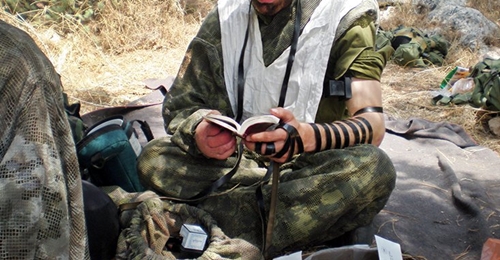Israel’s Haredi community is growing rapidly. Statistics show that around 25% to 30% of first-graders in Israel are going to haredi schools. A full 80% of haredi women participate in the workforce, which is almost the same as non-haredi women. However, only 50% of haredi men participate in the workforce, and this needs to change—quickly.
The small percentage of Haredi men in the workforce is a problem confined to Israel. The average stay at the largest yeshivah in America—Beth Medrash Govoha in Lakewood, New Jersey—is no more than three years. Rabbi Berel Wein has said that it is only in Israel where so many haredi men extend their yeshivah studies and do not join the workforce. This has created an enormous economic problem for the community.
The obvious reason why so many of Israel’s haredi men do not join the workforce is to avoid being drafted into the IDF. To do so in compliance with Israeli law, haredi men must remain full-time yeshivah students for many years.
However, the reason haredi men don’t join the army has nothing to do with a lack of desire to defend their country.
“The real reason why haredim do not enlist is the spiritual dangers involved in military service,” said Rabbi Yisrael Hoffrichter, who is an entrepreneur and director of haredi vocational programs for youth of high-school age. Hoffrichter concluded that “haredi service in the IDF is tremendously significant on both moral and existential grounds. For the IDF, there seems to be a readiness to allow haredim to integrate; among the various paths to full civic life, the IDF is doubtless the most flexible. It seems to me that the ball is largely in our court now. … We need to understand that we need the army as much and perhaps more than it needs us.”
Studies have shown, however, that many religious soldiers drop their observance during their army service. As a result, the haredi religious leadership generally opposes army service. National religious rabbis, in contrast, oppose it only for women. Many national religious women thus choose to do national service instead of the army.
As noted above, the lack of haredi army service, enabled by artificially prolonged yeshivah study, has led to widespread poverty. One proposed solution to this is to lower the number of years of yeshiva study required for exemption from army service so that haredim can enter the workforce at a younger age. However, this does not address the main issue, which is how the IDF can accommodate Haredi and national religious lifestyles. Though the IDF has attempted to do so via units like Nahal Haredi, this has only marginally increased the number of Haredim in the army. The IDF needs to work with the haredi religious leadership in Israel to make the dramatic changes required to solve this problem.
Most of the proposals for accommodating haredi army service do not deal with the reasons haredim do not serve. Instead, they are seen as a way to destroy haredi religious observance. This is not the case. However, the exemptions granted to the haredi community are the main cause of general resentment of the haredi community, as well the community’s economic problems.
A significant increase in haredi enlistment, moreover, could reduce the need for women’s army service and lead to the end of mandatory female enlistment in the IDF or national service, allowing women to enlist on a volunteer basis. This would allow Israeli women to attend university right after high school and enter the workforce at a younger age, which will have a positive impact on the Israeli economy.
However, it should be noted that the IDF needs female soldiers. I personally witnessed an example of this, in which the IDF had female soldiers watching an important fence to ensure terrorists were not trying to enter Israel. Only women were assigned this task because the IDF had discovered that women have better concentration than men. Just as haredi women are prominent in the Israeli workforce, women can serve in the IDF without doing so in a way that is contrary to religious sensibilities.
The haredim I have met are very proud to be living in Israel and care about all Israelis. The IDF needs to work with the religious leadership in both the Haredi and national religious communities to better accommodate their religious needs. The result will be a stronger IDF and a more unified State of Israel.

Leave a Reply